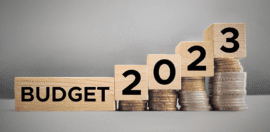Aussie charities fear their ability to advocate is being stifled

4 May 2021 at 8:19 am
Charity advocates say a shrinking civil space is damaging the state of Australia’s democracy
There are fears Australia is facing a “democratic depression”, with charity advocates concerned that increasing government restrictions on civil society are making NGOs too afraid to speak out on important issues.
During an episode of The Future of the NGO podcast, the shadow assistant minister for charities Andrew Leigh said Australia was a real pioneer in many aspects of democracy, but faced challenges as the nation grew increasingly disenchanted with politics.
He said NGOs had an important role to play in rekindling the nation’s interest in democracy.
“We’re going through a democratic recession. The only real question now is when that could turn into a democratic depression,” Leigh said.
“In that environment… it’s more important than ever before to have strong civic voices.
“If you’re an NGO in an advanced country, you have not only a platform, but also a responsibility, to be speaking on behalf of the voiceless.”
But Leigh acknowledged that increasing government restrictions on NGOs in recent years had made it more difficult for the sector to advocate for the vulnerable people they supported.
Pro Bono Australia’s Civil Voices report in 2017 found that many NGOs felt pressured to amend public statements to be in line with government policy and believed dissenting organisations risked having their funding cut.
See also: Advocacy Under Threat as NFPs Engage in Self-Silencing
In 2018, the social sector successfully fought to amend the federal government’s foreign donations bill, which under the original proposal would have made it more difficult for charities to conduct non-partisan issue-based advocacy.
The sector is also currently fighting against the federal government’s plan to change the governance standards for charities, which advocates say could lead to charities being deregistered for something as simple as tweeting in support of a protest that accidentally ventures onto private land, or providing support to whistleblowers.
Amid these developments, Leigh said it was clear there was a shrinking civil space in Australia and that NGOs were self-censoring to protect themselves.
“I see it in organisations that I speak with, that organisations are holding back [from speaking out], because they feel as if they do, they may jeopardise funding,” he said.
Pro Bono News spoke with The Future of the NGO host Rachel Mason Nunn, who is manager of international development at Equity Economics and previously served as a social development specialist at World Bank.
Mason Nunn agreed with Leigh that Australian NGOs were increasingly hesitant to advocate in the current political environment.
“Something that came up a lot in our conversations with NGOs is that they feel that their ability to advocate is really shrinking and feel increasingly concerned about the sustainability of their funding when they do advocate,” Mason Nunn said.
“That’s really worrying. And I do agree that it looks like a democratic recession and it’s going in the wrong direction. It seems to be getting worse.”
Mason Nunn said the problems affecting advocacy also extended to funders, many of whom were now reluctant to fund an NGO’s advocacy activities.
She said it seemed like an increasing number of donors did not want their funds going towards advocating on issues that were unpopular with government.
“When we think about the profile of donors, they might be corporate donors, they might be philanthropic donors, but they’re also people who care about their social standing and the way they’re perceived by government,” she said.
“So it’s a real domino effect when we’ve got this antagonistic political environment where NGOs are afraid to advocate, and then the flow on effects for donors and that’s causing major problems.”
You can listen to the full episode of the podcast here.







